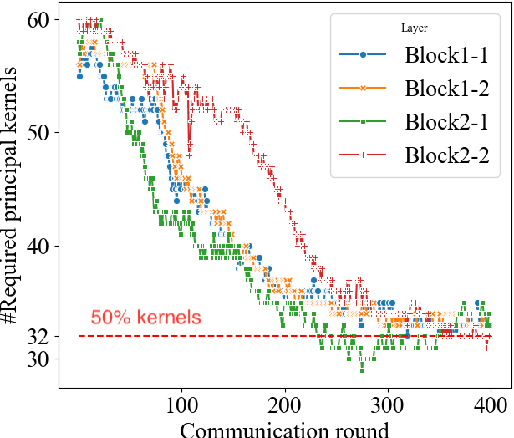Federated Learning of Large Models at the Edge via Principal Sub-Model Training
Paper and Code
Aug 28, 2022



Limited compute and communication capabilities of edge users create a significant bottleneck for federated learning (FL) of large models. We consider a realistic, but much less explored, cross-device FL setting in which no client has the capacity to train a full large model nor is willing to share any intermediate activations with the server. To this end, we present Principal Sub-Model (PriSM) training methodology, which leverages models low-rank structure and kernel orthogonality to train sub-models in the orthogonal kernel space. More specifically, by applying singular value decomposition (SVD) to original kernels in the server model, PriSM first obtains a set of principal orthogonal kernels in which each one is weighed by its singular value. Thereafter, PriSM utilizes our novel sampling strategy that selects different subsets of the principal kernels independently to create sub-models for clients. Importantly, a kernel with a large singular value is assigned with a high sampling probability. Thus, each sub-model is a low-rank approximation of the full large model, and all clients together achieve the near full-model training. Our extensive evaluations on multiple datasets in various resource-constrained settings show that PriSM can yield an improved performance of up to 10% compared to existing alternatives, with only around 20% sub-model training.
 Add to Chrome
Add to Chrome Add to Firefox
Add to Firefox Add to Edge
Add to Edge